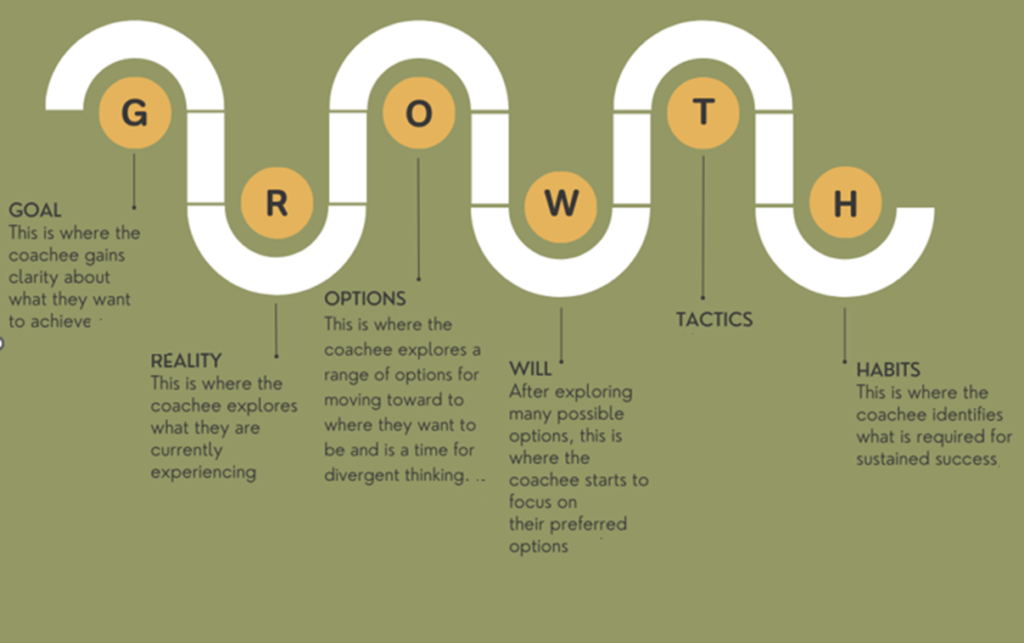Last month, three of our consultants, Moira Wade, Leanne Grogan and Rachel Pollitt, had the opportunity to present to a full house at the ECA conference in Adelaide. Their presentation was called “More Types of Leadership, a Coaching way of Leading” highlighting how Gowrie Victoria values and embeds a coaching approach to capacity building across their whole organisation. Moira and Rachel share their reflections about the experience.
Working as consultants with Gowrie Victoria and adopting Growth Coaching International’s Coaching Model in our coaching conversations, we identified how quickly coachees began to shift their focus on problems to actively engaging in solutions. Working with a methodology that enables others to see their strengths and their capacity to work toward positive outcomes is a great space to work in.
Gowrie’s coaching approach provides coachees with time to build trusting relationships with their coach, focus on their strengths, what’s working well and celebrating successes along the way. Coachees have spoken about growth in their self-confidence, increased competencies in practice and professional knowledge and how they view and value strengths in others.

Presenting and sharing our coaching approach with early childhood professionals at the ECA conference was with a view to providing the tools, research and rationale for adopting a coaching approach at their place of work. Our aim was to demonstrate how this can inspire us to identify and draw on each other’s strengths, value what we already have and build capacity together.
We began our presentation by defining what we mean by “coaching”. Much of the work we do draws Growth Coaching International’s definition of a coaching approach which is described as:
“a one-to-one conversation focused on enhancement of learning and development through increasing self-awareness and a sense of personal responsibility, where the coach facilitates the self-directed learning of the coachee through questioning, active listening and appropriate challenge in a supportive and encouraging climate.”(Van Nieuwerburgh 2012, p.17).
Coaching conversations focus on professional learning, practice and growth, identify new knowledge that can be learned and existing strengths that are fostered and developed.
Demonstrating the connection between a coaching approach and leadership was important as leadership has the capacity to facilitate growth and improvement. From our experience, when leaders bring a coaching approach to their role, it provides an amazing opportunity to increase their effectiveness and the effectiveness of their teams.
During our presentation, we highlighted 4 key interconnected skills and 7 attributes which are essential components for facilitating effective coaching conversations.
Coaching Skills
· Listening to encourage thinking provides the coachee greater opportunities to think, generate ideas, identify solutions and decide on a way forward.
· Noticing is about being curious. It’s a powerful tool we use to support the coachee to become conscious of what is working for them and others and what might be getting in the way of the next step forward.
· Asking powerful and well-placed questions can lead the coachee into unexplored territories of possibility. “The mind works best in the presence of a question.” (Kline, 2009)
Paraphrasing and summarising what has been heard and understood in a shortened form. At the end of doing this, it’s important to ask if what you’ve heard is correct to ensure clarity so that forward-thinking questions can support the exploration of ideas and options.
Coaching Attributes
· Humility – As a coach, you are also a constant learner, in partnership with the coachee.
· Confidence (in coaching abilities) – Confidence in your own skills and abilities as a coach are important.
· Empathy – Encourages conversation and further discussion.
· Respect – Being and feeling respected is a non-negotiable in a trusting relationship.
· Belief in others / positive expectations – For decades, research has shown that a person’s positive expectations about another person’s abilities can become a self-fulfilling prophecy (Rosenthal & Jacobson, 1966, 1968). This attribute is making a commitment to the coachees best interests.
· Integrity – A coach has integrity – and what they say and what they do align.
· Intercultural sensitivity – This creates meaningful cross-cultural communication, which is key to successful work and social relationships.
Coaching in ECEC continues to evolve as research and practice continues to inform powerful teaching and learning outcomes. Unlike other professional development or learning approaches, coaching is on-going, in situ, individualised, contextual, and occurs in real time. Implementing a coaching approach to leadership across a whole organisation promotes a positive culture of thinking, doing and learning.
Growth Coaching International’s GROWTH framework as a structure for the coaching conversations.
